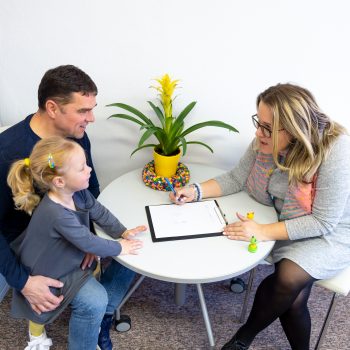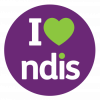 We understand that making the right match between you and your clinician is vital, and take great care to ensure your clinician is the right fit to help you reach your goals.
We understand that making the right match between you and your clinician is vital, and take great care to ensure your clinician is the right fit to help you reach your goals.
A good match between a participant and allied health clinician often comes down to good research.
Exploring options on both sides
On the participant side, once you’ve identified the services you need to achieve your goals, you’ll likely spend some time finding out more about the NDIS providers in your area and whether they’re right for you.
Your support coordinator or early childhood partner may be of help, and before you agree to work with a provider you might research their services on the internet, check out reviews, or speak with different providers either in-person or over the phone.
On the provider side, once you’ve made a choice about which individual or organisation you’d like to deliver a service, it’s up to us to do our research to make sure the clinician we assign to work with you has the right strengths and clinical experience to help you achieve your goals.
Making the match
Our allied health team leaders have exceptional clinical and leadership skills and put a lot of consideration into connecting a participant in their region with the most appropriate clinician.
Because our team leaders work very closely with our multidisciplinary teams, providing daily mentoring, training and supervision, they get to know their clinicians well and will assign a clinician based on their strengths and clinical experience. They will also consider location and availability.
For example, the clinician may have experience working with children, or with home modifications, assistive technology or mental health, and will be assigned clients with particular needs in these areas.
Our team leaders will also take into consideration the views and preferences of participants and support coordinators, who are able to view the professional profiles of clinicians to get an idea of their interests and areas of expertise.
In summary, we take the following factors into consideration:
- Your location
- Our clinician’s availability
- Skills and experience of the clinician
- Your own preferences as a participant
A successful match
If our clinician is able to achieve positive outcomes for you as the participant, and you want to continue on with your clinician over the long term, we consider that a good fit.
Usually, we can gauge the fit after the first face-to-face interaction, however we do ensure we allow time for our clinicians and participants to build rapport with each other, which can sometimes take a little longer.
For example, a successful match was recently made between our Physiotherapist, Casey Evans, and a client who requested a female therapist. The client requested someone who was gentle and patient who could provide in-depth education regarding treatment. This pairing has ended up working exceptionally well, with the client’s needs corresponding closely with Casey’s expertise and strengths.
Both sides benefit
The benefits of a good match can be seen on both sides.
Participants and their families often come back to us with positive feedback, saying how much they enjoy working with our clinicians and look forward to our visits. One mum recently commended our approach as being very different from what her son has had in the past, being fresh, age appropriate and easy to follow. She said that after only two visits he was already getting better at so many everyday tasks, such as getting dressed and brushing his teeth, and she was ‘so excited for his future!’.
Our clinicians also believe the best thing about their job is being around to witness their participants’ lives improving over time. For instance, one of our clients is a five-year-old boy who was only able to scribble his name when our senior occupational therapist first met him. After several months of therapy, he’s made massive progress and can not only write his name but is also able to sit still and pay attention during a 15-minute school session.
Talk to us
Let us help to make the right match between you and one of our friendly and experienced clinicians, and help you reach your goals. Call our friendly concierge service on 1800 238 958 or email hello@abilityactionaustralia.com.au.

